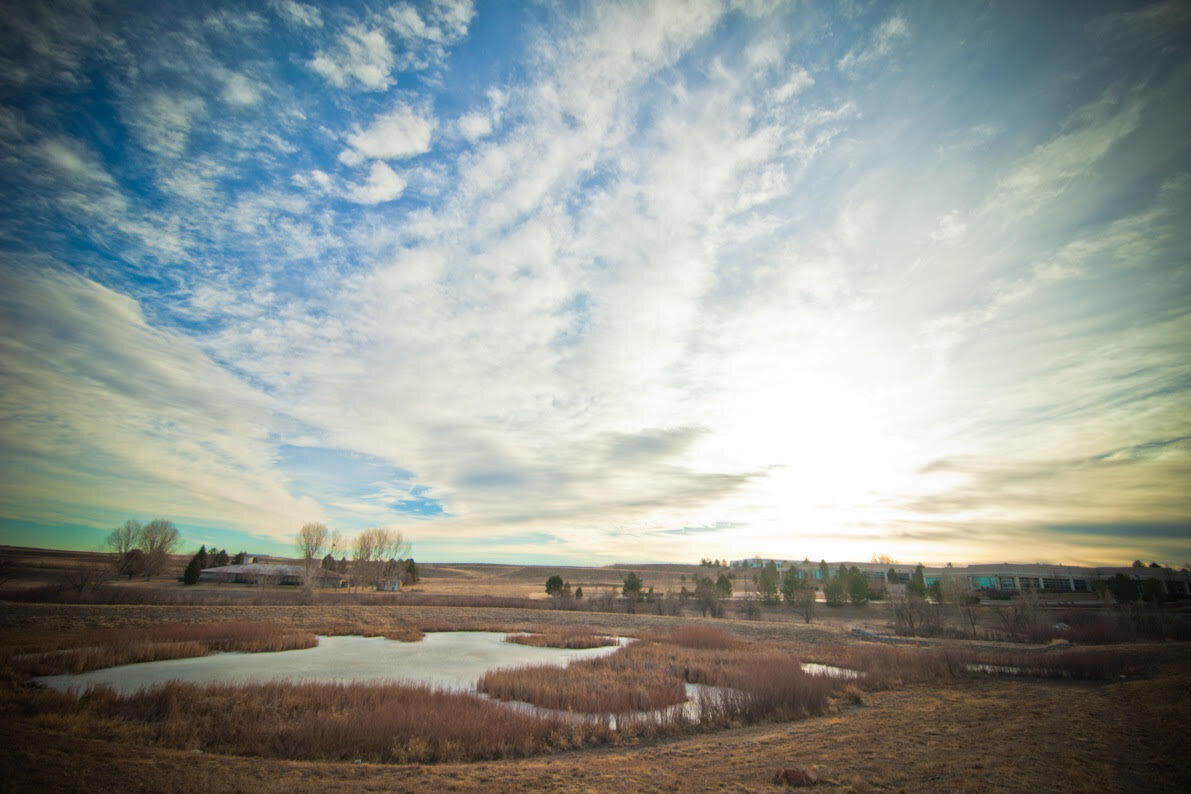
Take Action to Keep It Clean.
Why It Matters
Stormwater runoff occurs when rain or snowmelt flows over the ground on its way to storm drains, drainage ways, creeks, and lakes. Stormwater picks up debris, chemicals, dirt, pet wastes, and other pollutants and deposits them in water bodies we use for swimming, fishing, and drinking. Remember, runoff from a rainstorm or snowmelt is not treated at a wastewater treatment facility, so extra effort is needed by all of us! The pollutants that are washed into our streams, lakes, rivers, and reservoirs impact aquatic plants and animals. These organisms need clean water to survive and thrive.
What You Can Do
You can learn new ways to do routine activities that will protect water quality. Things like picking up after your dog, applying fertilizer and pesticides per the directions on the bag, and composting your leaves can all protect water quality. Check out the information below!
Keep pollutants out of our storm drains and drainageways.
If you see a spill, someone dumping something on the street, or down the storm drain please take the proper actions. Improper disposal is a disaster for our water if it ends up on our driveways and roads and washes into the storm drainage system.
Check out our Report Pollution page to learn about illegal discharges and how to report them. Also, visit our HOA and Property Management page for information you can share with your HOA or Property Management company!
Properly Dispose of Waste
Don’t Litter.
Trash and other debris make their way into the drainage system and into our waterways.
Chuck Trash in the Nearest Trash Can
Undisposed of trash washes into our water ways. Yuck!
How You Can Help
Dispose of trash in designated containers
Makes sure it is properly secured so it does not blow away
Household Hazardous Waste (HHW)
Why It Matters
Household Hazardous Waste (HHW) can make its way into waterways and damage delicate ecosystems. It is also hazadorous to people. Examples include paint, mercury, gasoline, degreasers, cleaning compounds, and garden chemicals.
How You Can Help
Read the product labels to learn how to safely store, use, and dispose of chemicals.
Take your HHW materials to a recycling center or round up event (see below).
Many of our members host recyclying and drop off events. See our Contact Page for more information. Also, see
Tri-County Health Chemical Roundups EPA HHW Earth911
Some of our Members utilize Waste Management at Your Door
Scoop the Poop.
Dog waste contains nitrogen and phosphorous. When these nutrients make it into our waterways they contribute to low algae growth and depleted oxygen, which can kill fish and other aquatic life.
Pick It Up.
Carry extra pet waste bags on walks. You can use containers made specifically to hold rolls of dog waste bags that attach to your dog’s leash. You can use compostable bags.
Bag It.
You’ve scooped it. Don’t let that effort go to waste. Make sure that bag ends up in the nearest trash can.
Pay A Scooper.
Not everyone has enough time to scoop it. The good news, you can hire someone to scoop it for you! You can find several affordable local businesses to help you Scoop the Poop!
Don’t Wash Your Car In the Driveway.
Do Wash It on the Grass or at the Carwash.
Why It Matters
When you wash your car in the driveway all the dirt, oil, grit, and soap wash off your car, down the driveway, along the curb and gutter, and into the nearest inlet. From there they are washed into our streams, rivers, lakes, and reservoirs.
What You Can Do:
Wash your car somewhere where the water will drain to the grass or gravel so that it soaks into the ground instead of running to the nearest inlet.
Better yet! Take it to the carwash where the water will drain to the sanitary sewer.
Watch this video to learn more!
Maintain Your Vehicles.
Leaking oil and other fluids leak onto your driveway or the road. During the next storm event, they are washed into the storm system and into the nearest stream, river, lake, or reservoir. With all the cars on the road, this can really add up.
What You Can Do
Fix Leaks Right Away
Whether you are handy, or take your vehicle to the mechanic, repairing leaks promptly prevents these fluids from washing into our waterways.
Until the repair can be made, make sure to put a drip pan down to collect the leak.
Use Dry Cleaning Methods
Think kitty litter to absorb the oil and a broom and dustpan to clean it up. Never use water to wash away oil and other leaks.
Keep Your Lawn Green and Our Water Clean
Leaf litter, grass clippings, and excess fertilizer add nutrients to our waterways. Too many nutrients cause algae overgrowth, which removes oxygen from the water, causing harm to aquatic life and unpleasant odors. The good news is you don’t have to give up your lawn. With a few good practices, you can keep your lawn green and protect water quality!
Soil chemistry and how to test your very own soil sample video!
Fertilize Effectively.
Watch the weather so you can fertilize when there are no storms on the horizon
Fertilize in early fall to promote a healthy root system for stronger, more resilient plants and lawn
Properly Dispose of Lawn Waste.
Compost or bag your leaves and grass clippings
Don’t blow grass clippings into the street
Hand pull weeds when possible
Sweep up spills or fertilizer overspray
Turn It Down.
Fix leaks and adjust sprinklers based on the weather and reduce runoff.
Don’t powerwash debris into the streets.
Adjust fertilizer spreader to apply the correct amount. Typically the bag has this information or you can ask your local garden center.
Choose Wisely.
Perform soil testing to figure out how much fertilizer to apply.
Consider slow-release fertilizers with insoluble or slowly soluble nutrients.
Plant native species to decrease the amount of turf, water, and fertilizer needed.
ITCHING TO LEARN MORE ABOUT THE SOIL UNDERNEATH YOUR FEET?
Visit the Cherry Creek Stewardship Partners to print out our workbook to join in on the fun!











